Analysis of Economic Determinants of Health and Inequalities
VerifiedAdded on 2021/11/19
|6
|519
|68
Report
AI Summary
This report examines the economics of health, focusing on social determinants and health inequalities. It begins by exploring why disease is considered an economic issue, highlighting the costs associated with treatment, the impact of diseases like HIV/AIDS, and the economic burden on individuals and society. The report then delves into the concept of the 'cost of inaction,' emphasizing how investments in social determinants such as education, income, and employment can lead to better health outcomes and reduce inequalities. It further discusses the impact of social determinants, such as income and the environment, on health, and analyzes the role of inequalities in creating social injustices. The report concludes with a discussion question on the primacy of income as a determinant of health. This analysis draws on several scholarly sources to support the arguments presented.
1 out of 6
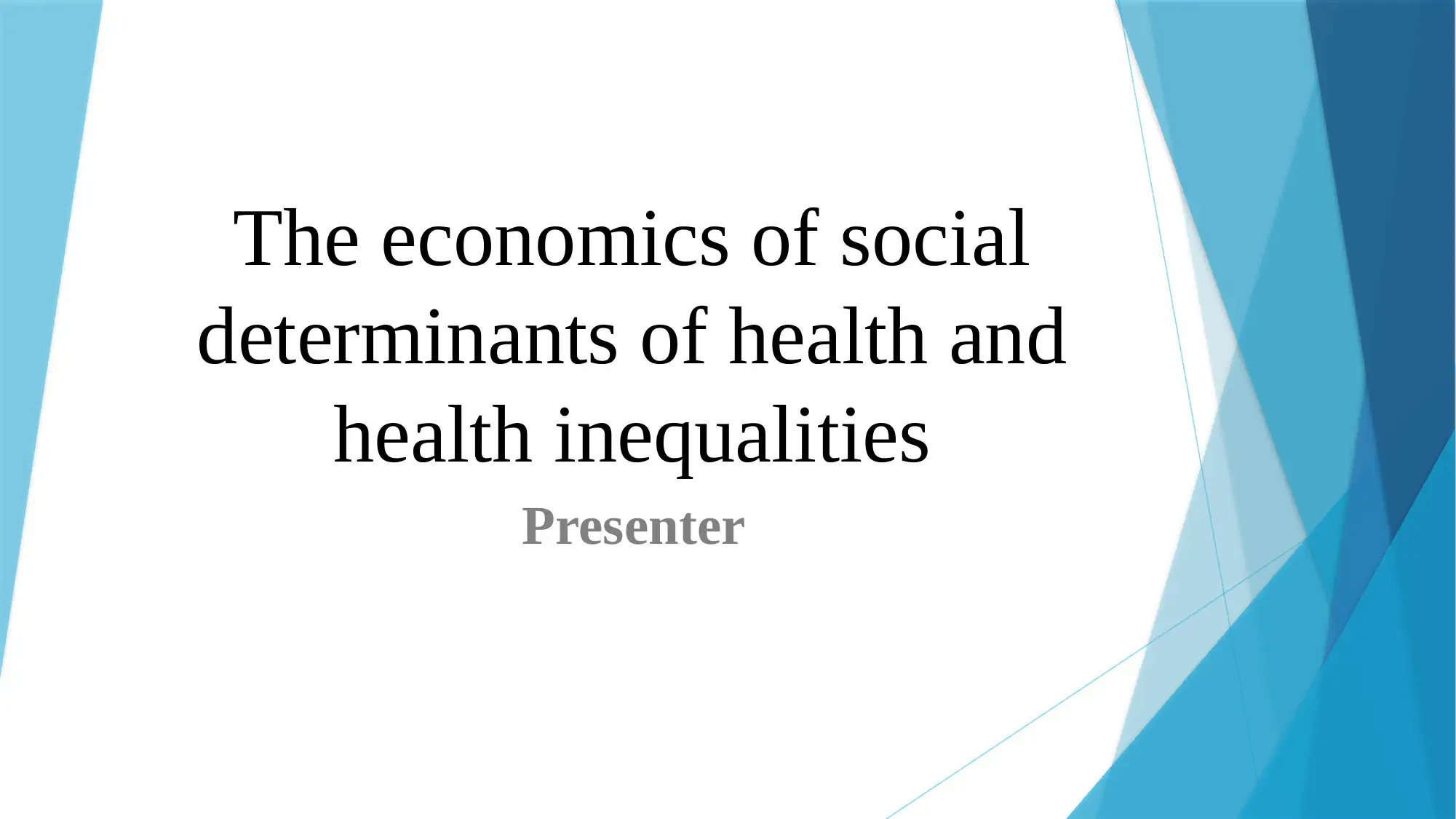
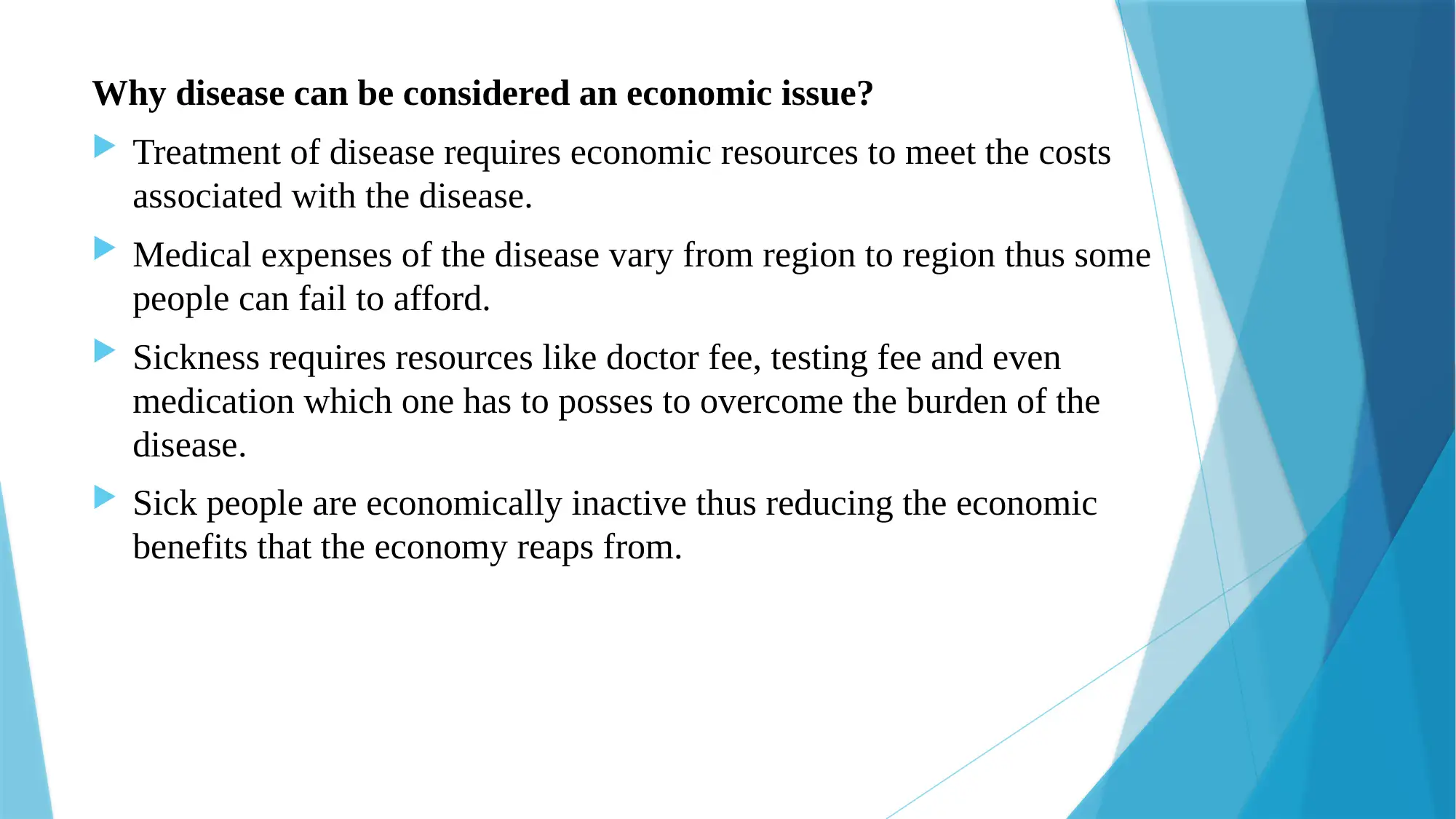
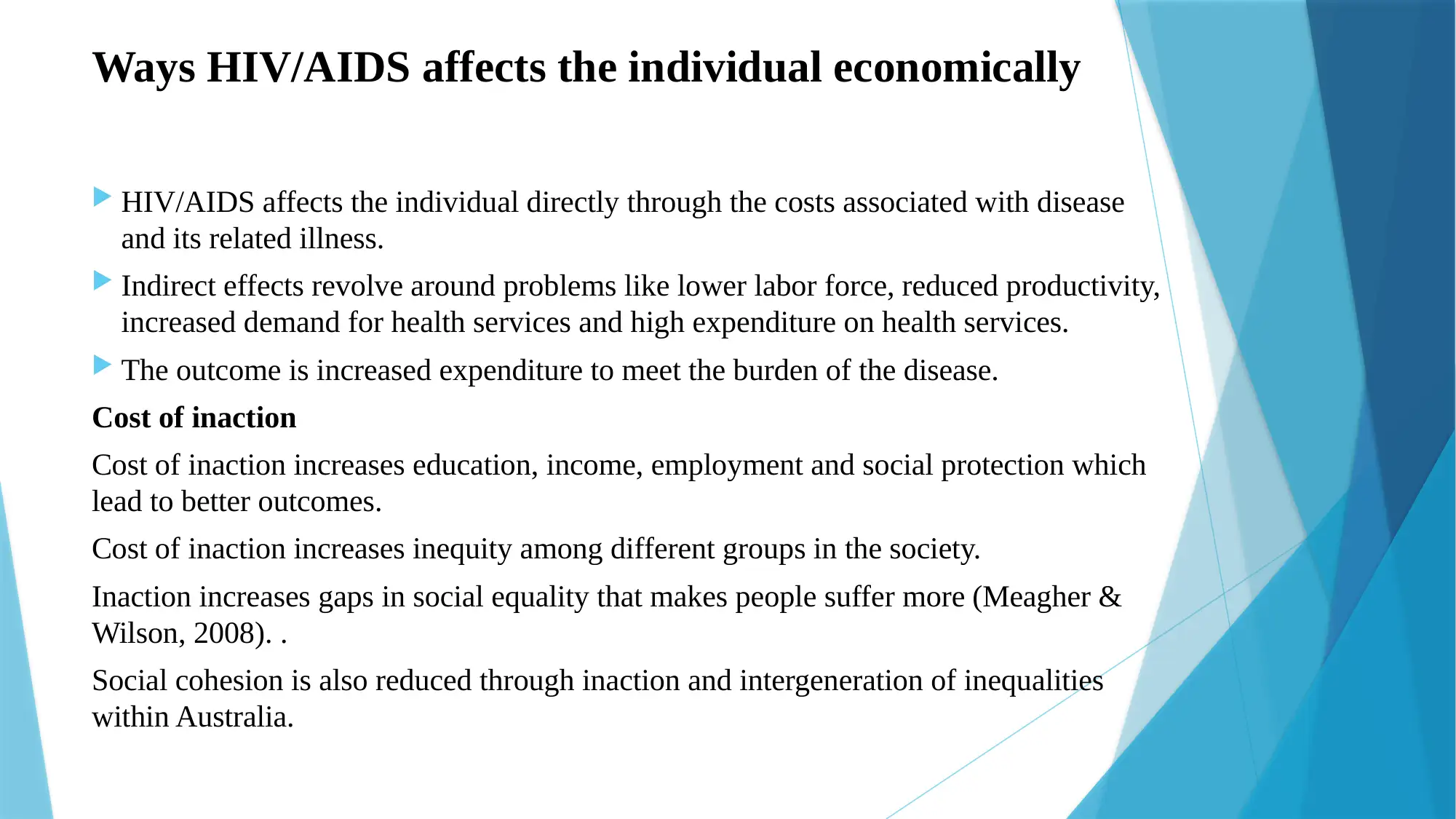

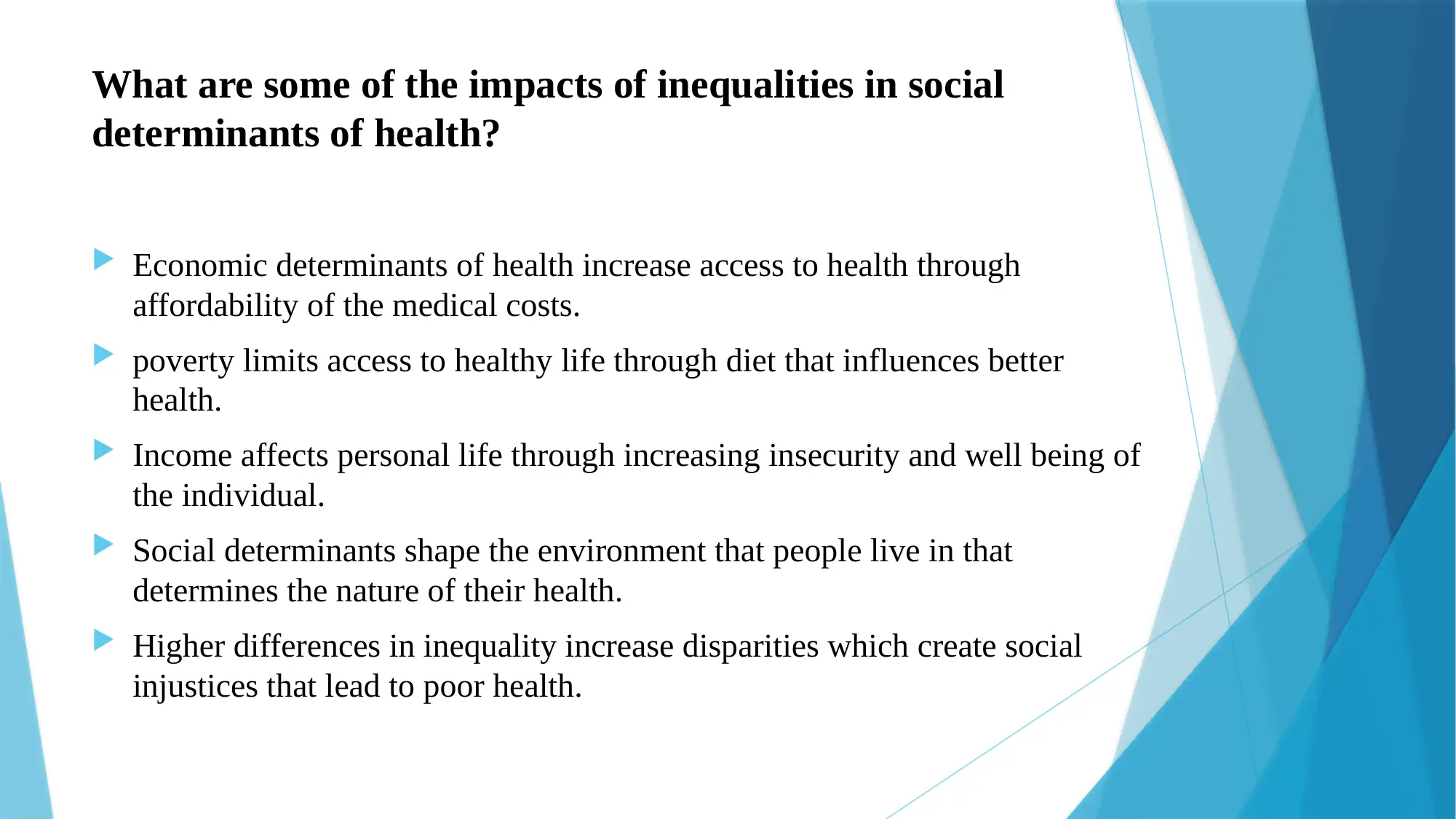
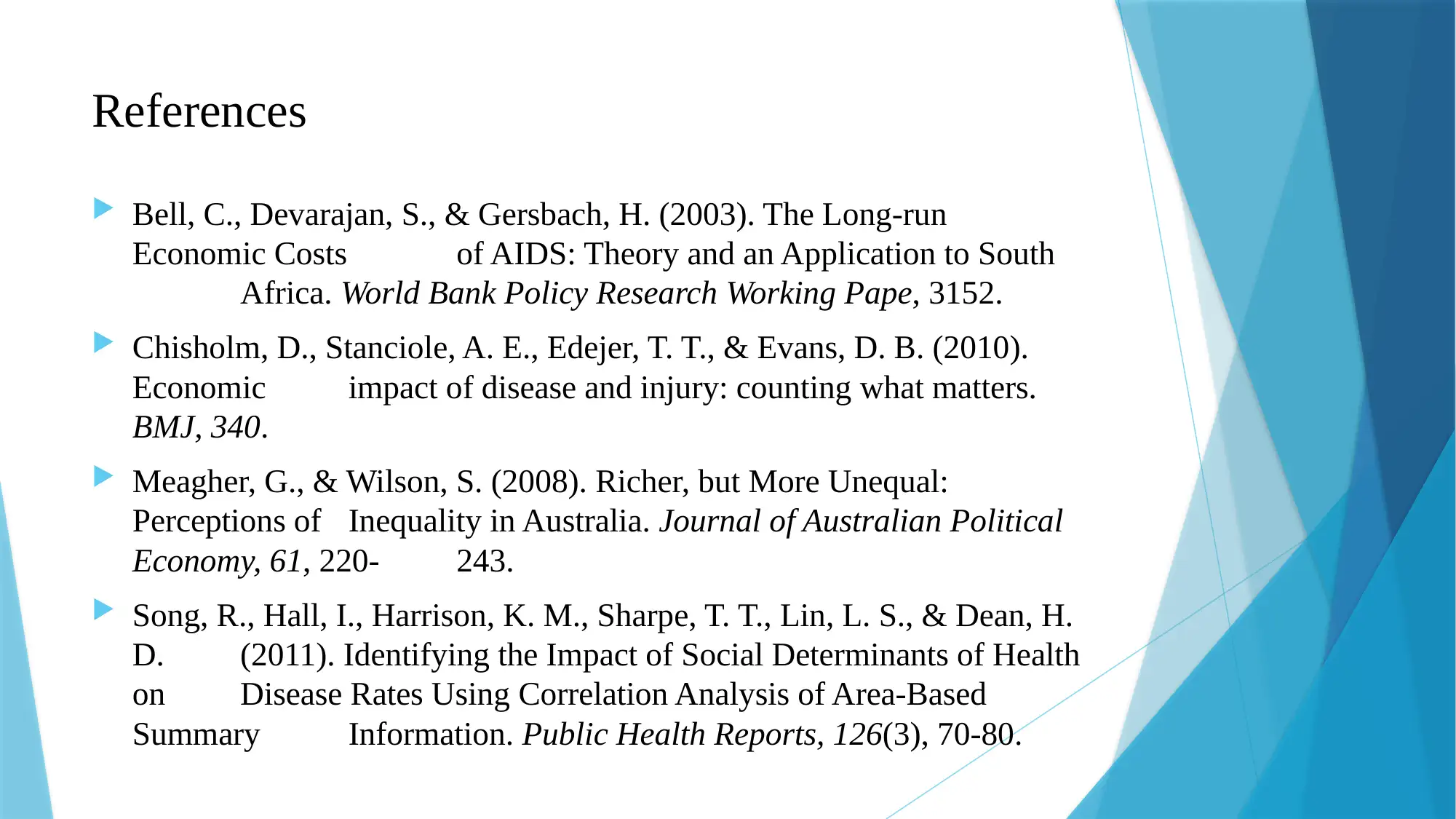
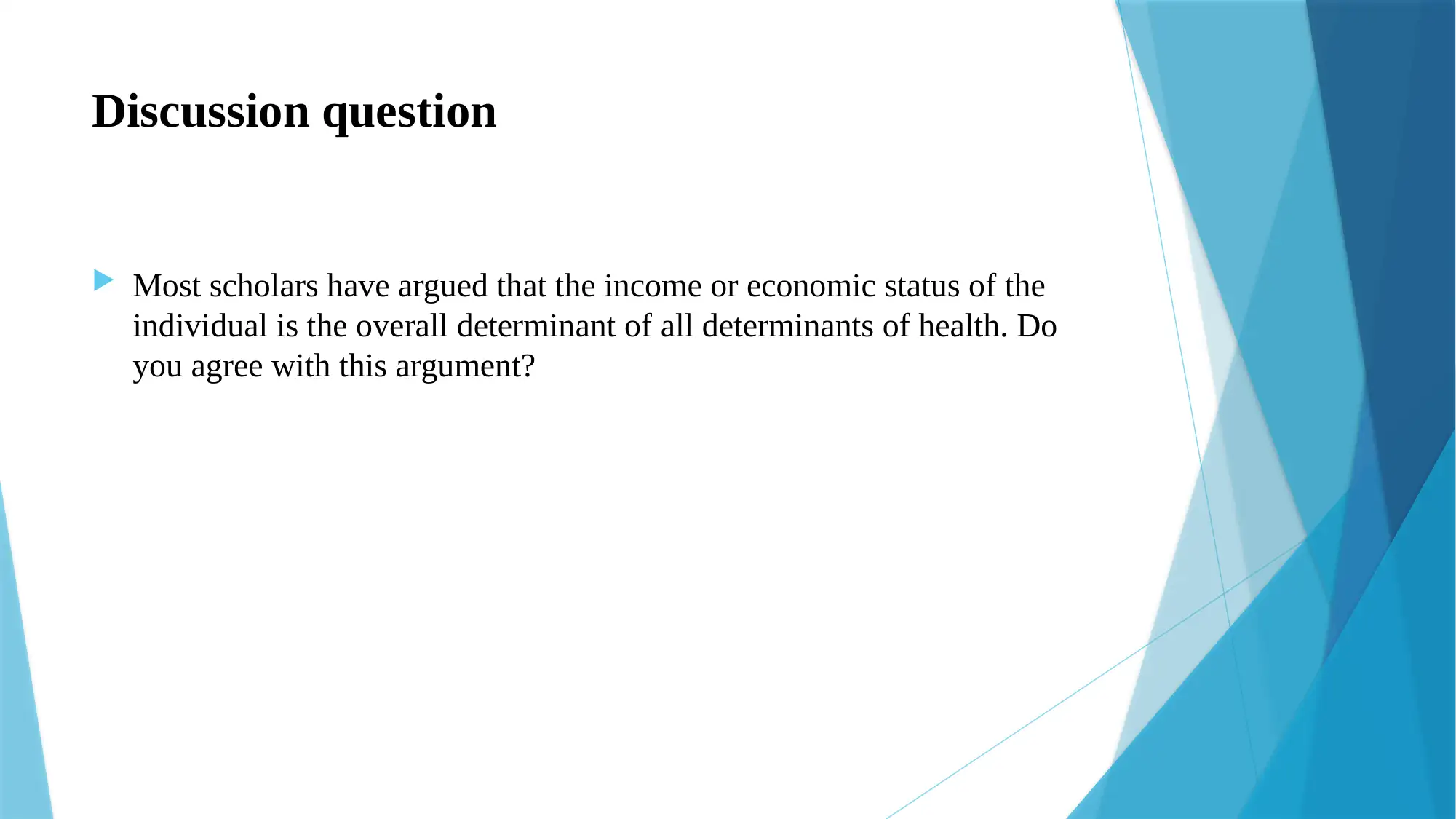






![[object Object]](/_next/static/media/star-bottom.7253800d.svg)